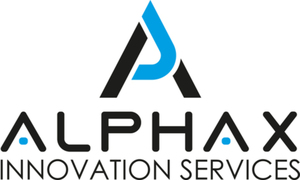Every time that movie directors want to demonstrate technical excellence in the future, they show self-driving vehicles. Even James Bond (Tomorrow Never Dies, 1997) used a remotely-operated car on some occasions. It seems taken for granted: once the technical progress makes such things possible – we all will migrate to autonomous vehicles.
It is 2020, and such cars are already on the roads. The world-leading companies like Amazon, Google, General Motors, and Tesla develop their own models. Even traditional cars include automated modules to avoid collisions, cope with parking pirouettes, and do many more useful things.
A few words about autonomous vehicles
First of all, they are different. There are five degrees of autonomy at the moment: from the level 1 car where everything depends on the human driver to level 5 with all features fully automated. Most of the existing self-driving cars are of level 3, meaning they can navigate themselves under the right conditions. Rarer are vehicles of level 4, doing all the primary functions without the driver. Elon Musk claims to launch a fully automated self-driving car of level 5 later in 2020.
So, has the future from books and movies already come? Not really. We still have to overcome a couple of obstacles to bring the things existing in fantasies to life.
The real pluses of self-driving cars
It turns out that traditionalism is the main obstacle to technical progress. People always oppose innovations. However, things making life easier will invariably prove their capabilities.
Speaking of self-driving cars, let’s mention the most significant pluses:
- They are safer. The human factor causes a better part of automobile accidents. Being tired, impatient, or distracted leads to tragedies. Self-driving cars don’t have such problems – they are machines driven by algorithms.
- They can move more compactly and make the traffic not so heavy. Electronic modules evaluate the traffic conditions and react to them much faster to avoid building jams.
- They allow getting time for yourself. You won’t need to stay focused for hours – you will be able to work on more useful things instead. Self-driving cars would set people free of emotional and physical stress on the road.
Arguments are in favor of self-driving cars. But they remain a wonder. So, why do people resist these autonomous vehicles?
The road rules for people and machines
The results of polls at Reuters are pessimistic: only one-third of adults would agree to let their cars drive themselves. People seek control and don’t trust technologies. They tend to forgive human-caused risks. But it is far from it with the uncertainties brought by technologies. Developers of autonomous vehicles know for sure that these cars must be much better drivers than human beings.
An automated car will always obey the rules. But the road traffic is regulated by written rules and much more significant collections of rules unwritten.
Local laws and unofficial rules
Should we deal with the official codes only, they vary in different cities and states. Besides the most evident cases, like the differences between the traffic rules in Germany and England, there are less visible issues. Human drivers usually don’t dig so deep – they tend to drive “safely in general” and rely on the experience and practical understanding of things on the foreign territory. Trained drivers react to thousands of road scenarios within a split second, almost subconsciously. In most cases, it is enough to pass safely; but sometimes, they have to deal with local police officers.
It is different with self-driving cars – they must know all rules applicable in every city. No one would build an autonomous vehicle that can operate only within a restricted area.
One code to rule them all?
Actually, we can collect and register both official and unofficial traffic rules for every city. There are also ideas to develop a general traffic code, but it looks too optimistic. At the same time, a comprehensive library of the road rules might work.
Self-driving vehicles are controlled by software that must deal with each rule applicable in this or that area. It means there must be a comprehensive database to track and check any minor command. It must also contain the latest information – always. But the most critical factor is trustworthiness. Such systems already exist – the blockchain technology is their foundation. Blockchain principles prove themselves perfect for managing similar registries.
If we succeed in compiling a global library of all traffic rules, there won’t be accidents because of ignorance. No matter where an autonomous car is working at the moment, it will always get full information on local regulations.
Traffic rules breakable and unbreakable
City traffic is a super-sophisticated system even if the city is not big. Many thousands of cars and pedestrians interact every moment with different results. Still, existing traffic rules keep this system from turning into chaos. Problems take place when participants break them.
It is not always because of evil intentions – just interpretation. Many accidents on crossing the intersections, for instance, happen because of interpreting rules in their own favor instead of obeying the written regulations. Too often, it depends on “eye contact,” personal experience, instincts, and many other vague things that software can’t learn. A driver who merely obeys all rules will most likely have a tough time on the road.
The road agreements
Let’s have a look at the traffic system in general. It is a bunch of instant agreements between participants taking place every moment. These agreements can be based on rules or additional circumstances. A driver can give way to some car on a courtesy basis or refuse to obey the rules for personal reasons. Traffic systems resemble the human mind with its myriad emotional triggers and subconscious decisions.
Can we teach a car to behave like a human being on the road? It’s not a good idea. An unpredictable car? No way!
The trap for automated cars lies here: self-driving vehicles need to interact with human drivers and their chaotic reactions. Perhaps, it won’t be able to regulate this model properly until all machines on the road become automated.
But it is possible to help all the participants now. Like it could be with the potential “great code” code of all traffic law regulations, the traffic itself can be supported by the blockchain technology. Those countless instant subconscious recognitions that the human driver makes while going from point A to point B are very much like the smart contracts – the bases of blockchain-based software.
The blockchain-supported traffic management
The data in the blockchain network don’t conflict. It is the basis and nature of the technology: every new entry must comply with the rules set for the system. The implementation of such a system could even resolve an implacable problem of the intersection crossing!
Intersections are where most accidents happen, despite numerous rules regulating this problematic area. If every participant obeyed them, the traffic would be safe and smooth. But in reality, car drivers tend to interpret these rules in any way possible, so that intersections remain the most vulnerable segment of the city traffic.
It would be different if all vehicles operated as particles of the same blockchain network, already “knowing” their rights for every scenario. Machines would estimate their own positions, the distances separating them from other cars, directions of movements, and actions of every vehicle on the intersection. Arguments on who has the right to cross it first would not even appear – the rules will define it precisely, and each participant will act according to the rules.
And this will go for every “instant contract” you make. It won’t let the speeding cases happen where they are not allowed; it will regulate overtaking instances and even unofficial turns. The traffic law covers even rare cases – the trick is to make everyone obey it.
One of the significant advantages of using blockchain technologies for automated car management is the stability of data. Most likely, you’d remember a couple of examples from popular dystopias frightening us with the dominance of technologies. What if someone or something gets access to the controls that assure stable interaction of all vehicles on the road? What if they turn the traffic into a major crash? Well, the blockchain-based networks are so resistant to the intrusion that even villains from the James Bond movies would give up on attempts to hack a traffic system.
Self-driving cars are already conquering their niche of ridesharing services – no wonder that the Uber giant is an adept of autonomous vehicles. More other companies hire autonomous buses and shuttles. Their passengers then mostly tell about the safest and most boring rides of their lives. But is it vital to get stressed and pump the body with adrenaline on the road?
The picture of the future
The future of robots-taxi drivers and fully automated cars remains distant. It still faces lots of major and minor milestones to cross. But the trends are towards the automation of vehicles and making them advanced enough to drive anywhere. And don’t forget about the efforts of marketing strategists! They work hard to fight the prejudice regarding technologies becoming too smart.
In ten or twenty years, all types of self-driving cars will occupy the roads and carry people and things. Being included in one universal system, they will continually interact, predict all possible problems, and avoid them before their passengers might even think of those.
The general speed on highways may increase due to the much better control, and all deliveries will become faster. Possible that we won’t need the traffic lights for machines, as their sensors will provide much more data for calculations than the visual perception of a human eye.
Even now, in a mixed-mode with autonomous cars going side by side with traditional vehicles, we can make their interaction more efficient. And the future certainly holds many more exciting possibilities for us all.


